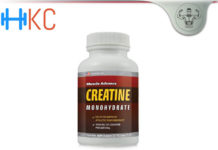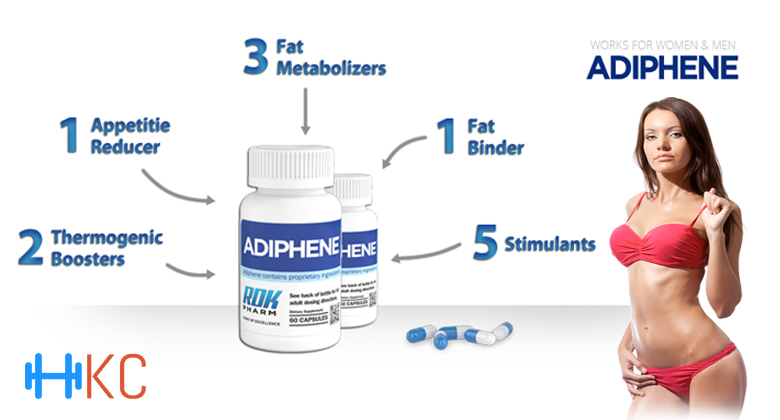
Vitamin D deficiency is getting common worldwide especially in women, despite the fact that its major source is sunlight which is everywhere around us. You could blame a sedentary, indoor lifestyle to for this deficiency or maybe lack of adequate absorption of Vitamin D through the digestive tract.
A survey conducted through National Health and Nutrition Examination showed that 50% of children from ages 1 to 5 years, and 70% of children from ages 6 to 11 years experience Vitamin D deficiency while teenagers and adults had it even worse. On average, it is estimated that 50 percent of the general population is at risk of vitamin D deficiency and insufficiency.
Vitamin D has a profound role in your body. It contributes in providing for the formation and maintenance of strong and healthy bones through calcium absorption, strengthening the immune system for fighting infection and regulating circulation and heart health.
If your body is deficient in vitamin D, overtime it can lead to bone pain, softening of bones, muscle pain, weakness and much more. Some studies also reveal an association of moderately low levels of vitamin D to many health conditions like diabetes, osteoarthritis, and cancer.
Notice your symptoms and if you think that you have some of them, contact a health professional and get yourself checked. These signs can be so subtle and so easily overlooked that you may ignore them as normal everyday aches and pains. Order a Vitamin D deficiency test to accurately determine your vitamin D level. If it’s low, discuss ways to improve levels, typically by getting a prescription for supplements.
Here are 9 signs of Vitamin D deficiency you need to look out for:
Tired and Fatigued
Fatigue could actually a manifestation of underlying muscle fatigue. If your body is not getting adequate amounts of vitamin D, you may feel completely exhausted, even if you’re eating enough and sleeping right. Feeling tired may be linked with several nutritional deficiencies and Vitamin D is one of the most overlooked among them.
Many studies show that very low blood levels of vitamin D can cause fatigue and exhaustion. A case showed that a woman who had chronic daytime fatigue and headaches revealed an extremely low level of 5.9 ng/ml of Vitamin D. Anything below 20 ng/ml means deficiency. Another research conducted on female nurses displayed a strong association between decreased vitamin D levels and self-reported fatigue. It was found that 89% of the nurses were deficient.
The good news is proper vitamin D intake can give you strength in every fiber of your being, whether you’re young or old. Many studies have found that vitamin D supplementation improves muscle control, even in adults around 60 years old. Within just six months of supplementation, vitamin D associated muscle weakness can be treated very effectively.
Depression
If you are going through depression, you may want to get your vitamin D levels checked. Research has shown an association between low levels of vitamin D in the blood and depression. Although it is still not clear whether vitamin D levels drop due to depression, or if low vitamin D levels may actually cause depression, but the Vitamin D Council studies say that there are Vitamin D receptors in the brain that may work and impact the level of hormones, like serotonin(the happy hormone).
A study conducted on healthy young women showed that over one third had depressive symptoms, and almost half of them had Vitamin D deficiency. Another study also showed an association of low mood and worse cognitive performance with Vitamin D deficiency in older adults.
Whatever the association is, it is pretty clear that giving vitamin D to people who are deficient, does help in treating their depression. So, if you’re struggling with depression or anxiety, getting a Vitamin D deficiency test is worth a shot.
Excessive Sweating
Sweating on the forehead is a classic sign of vitamin D deficiency as well as the least known of all signs. Excessive sweating on the forehead is also a commonly used, early indication of a Vitamin D deficiency in newborns. The same applies for adults too. Forehead sweat is also a subclinical symptom of rickets, which is the most extreme form of vitamin D deficiency in children.
If you feel too sweaty even when your activity levels are steady and your body temperature is normal, you may want to consider a Vitamin D deficiency test.
Chronic Bone/Muscle Pains
Calcium and Vitamin D go hand in hand when it comes to bone health. If you have a Vitamin D deficiency, then you are most likely going to have constant, prolonged aches and pains in your bones and muscles. Your joints may also get stiffer in the morning, especially in winter. This is the most common sign of vitamin D deficiency, also known as osteomalacia.
People with vitamin D deficiency are twice as prone to bone aches in their legs, ribs or joints compared to those within normal levels. Many researches show that people who have a deficiency in vitamin D are more likely to have back pain and it may get so severe that it could limit their daily activities.
If your pain is chronic and continues for several weeks, consider asking your doctor if a vitamin D deficiency might be the cause. Correcting your Vitamin D levels will not only build stronger bones but it will also improve the function of your muscles.
Insufficient levels of vitamin D can also have a huge effect on your fitness levels and muscle function. This deficiency might be the reason you are lagging behind in your performance as it’s deficiency is associated with increased inflammation. Vitamin D supplements can boost physical performance in people with a deficiency. Adequate vitamin D can eliminate post-workout pain and speed up the process of muscle recovery.
Susceptibility to Fractures
The softer your bones are, the more likely they are going to get fractured easily. A common perception among people is that only a lack of calcium affects bone health. But the fact is that without vitamin D, calcium doesn’t get absorbed properly. Vitamin D regulates calcium absorption thereby stopping bones from getting thin and brittle.
If you have been diagnosed with low bone mineral density, then this could mean you have a vitamin D deficiency. As you get older, you need to take extra care about your Vitamin D levels. This is because your body halts bone mass formation around age 30. According to a study published in the American Journal of Clinical Nutrition insufficient vitamin D can also exacerbate or worsen osteoporosis symptoms.
Erectile Dysfunction
Erectile dysfunction is a very common sexual problem among men and while it can be caused by other factors a Vitamin D deficiency should always be considered. Men who suffer from erectile dysfunction usually also have a cardiovascular disease, that can also be linked with a lack of vitamin D.
A study published in the Journal of Sexual Medicine, showed that men with severe erectile dysfunction had remarkably reduced vitamin D levels than men with mild erectile dysfunction. It was also found that Vitamin D deficiency was present in 35 % of men with erectile dysfunction, as opposed to 29 % without erectile dysfunction.
Frequent Infections
If you feel that you get sick very often, it’s time to dig deeper into the problem. Insufficient vitamin D has a major impact on your immune system. You’ll catch whatever is going on around you, like colds, viruses or flu, if your immune system is weak, and since Vitamin D plays a vital role in maintaining a good immune response, it’s no wonder that a lack of it will get you sick frequently.
A study published in the Archives of Internal Medicine showed that people who had lower levels of vitamin D, reported of having had a recent cold, cough, or upper respiratory infections. Many other studies also show a strong association between a vitamin D deficiency and respiratory tract infections like bronchitis and pneumonia.
Some studies also suggest that by taking vitamin D supplements that provide 4,000 IU daily can even reduce the risk of respiratory tract infections.
Sleeping Problems
If you can’t seem to manage your sleeping habits despite a lot of efforts, then it might be due to a lack of vitamin D. The sunshine vitamin can not only mess up your sleeping pattern but also lead to issues like insomnia, sleep apnea, REM related apnea and irregular body movements during sleep.
Vitamin D deficiency is specifically linked with daytime sleepiness. A research conducted to found any association between daytime sleepiness and Vitamin D revealed a strong link between excessive daytime sleepiness and Vitamin D deficiency. Another large study conducted on 1,500 neurological patients who had irregular sleep patterns also showed significant improvement with vitamin D supplementation.
Wound healing
Slow wound healing after injuries or surgeries is also a sign of low levels of Vitamin D. This is because Vitamin D reduces inflammation and has a role in fighting against infections, both of which are components of proper healing. Vitamin D also helps in the formation of new skin in the wound-healing process.
A study analyzed patients with diabetic foot infections and discovered that those with severe vitamin D deficiency had increased inflammation halting the healing process. Another study done on vitamin D deficient patients with leg ulcers found that when these patients were supplemented with vitamin D, their ulcer size decreased by approximately 28%.
Author Bio: Lisa Brown has been helping her readers in successful business and entrepreneurial strategies for the past 3 years. She currently works with uae.ekuep.com ,which is the answer to UAE’s growing restaurant industry. Ekuep is the brand that restaurants, bakeries, cafes, juice bars, and more turn to when they want to stock their kitchens with only the best restaurant equipment.






































